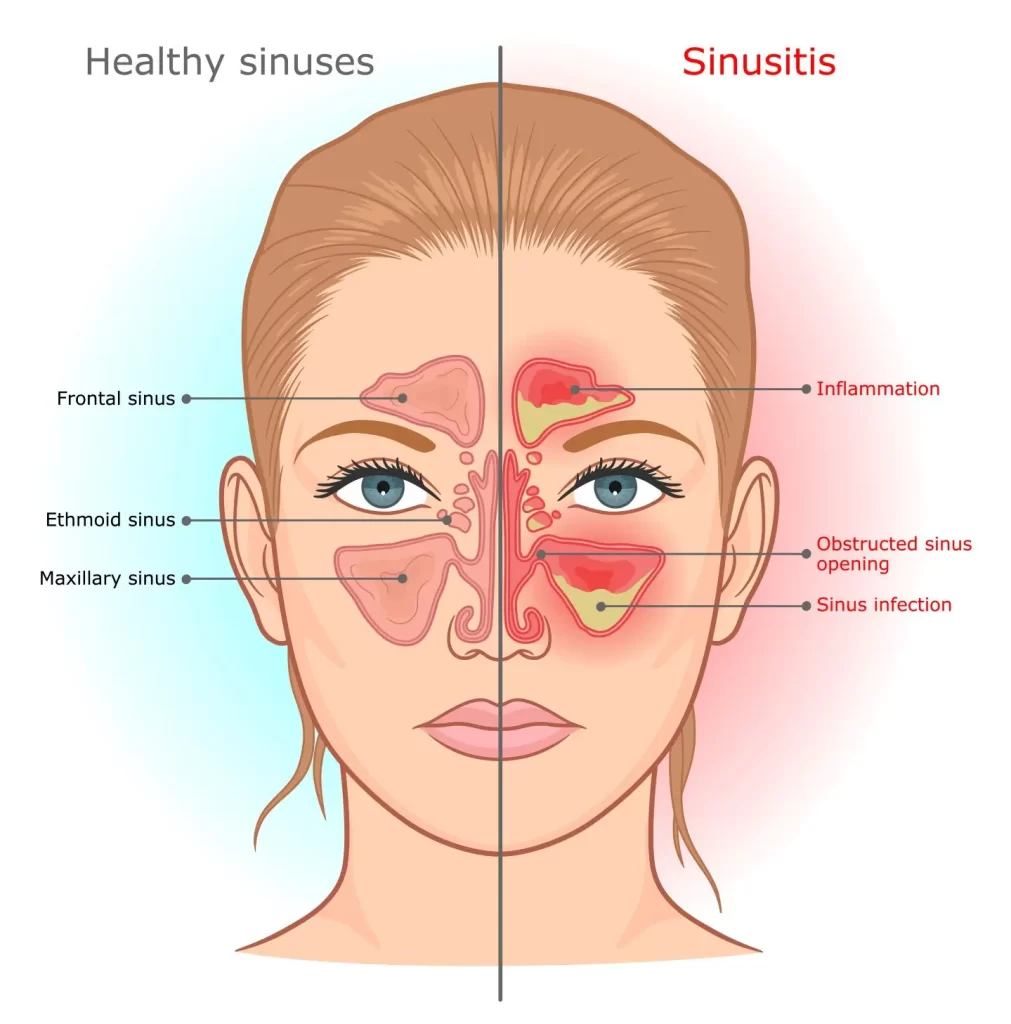
Allergic sinusitis, also known as allergic rhinosinusitis, is a condition where the sinuses become inflamed due to allergies.
Types of Allergic Sinusitis:
Acute Allergic Sinusitis:
Short-term inflammation of the sinuses due to allergies, often triggered by seasonal allergens like pollen.
Chronic Allergic Sinusitis:

